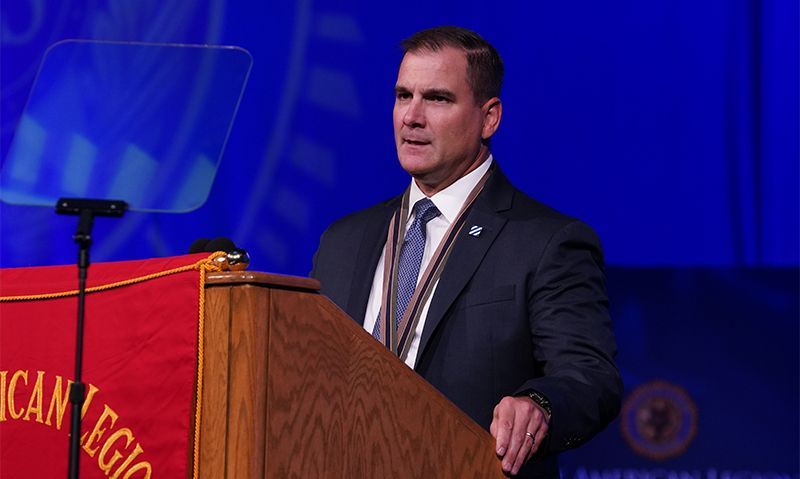
Project ATLAS is one example of how Philips, The American Legion and VA are forging solutions for rural veterans.
The American Legion has played a pivotal role in helping to understand the needs of veterans, which allows Philips North America to improve health care, Jeff DiLullo, senior vice president of field operations, told Legion Family members in his Sept. 1 address to The American Legion’s 102nd National Convention.
Nearly half of all veterans in the Department of Veterans Affairs (VA) health-care system live in rural areas. These veterans face barriers when it comes to accessing their health-care needs.
“Providing care to rural veterans has been a passion of Philips,” said DiLullo. “But it also presents real delivery challenges because we have few physical practices, hospitals, networks, geographic barriers, and broadband and internet availability.”
Earlier this year Philips North America, VA and The American Legion worked jointly to launch a solution to this problem.
Project ATLAS (Accessing Telehealth through Local Area Stations) brings VA health-care access closer to veterans through an innovative program in which Philips and The American Legion work together to combine the convenience of the retail clinic model with Philips telehealth technology and access to VA caregivers — inside an American Legion post.
American Legion Post 176 in Springfield, Va., was the first Project Atlas site at an American Legion facility. There are several others, including one at Post 12 in Wickenburg, Ariz.
“Pods within American Legion posts offer telehealth appointments with doctors through a secure VA video connect,” DiLullo explained. “These pods are equipped with patient monitoring solutions, wireless technology and sensing devices to allow veterans to receive clinical services such as primary care or most importantly mental health counseling.”
Bringing these services closer to veterans removes one of the biggest hurdles veterans face when it comes to accessing health care through VA. Today, 10 ATLAS sites are being piloted across the country.
Another initiative from Philips North America is the development of non-invasive, wearable monitoring technology. This technology will be able to provide individualized early warnings of possible infections or changes in condition, according to DiLullo. These innovations will provide veterans with proactive health monitoring no matter where they live.
“Philips is on a mission to make great health care accessible to all of our veterans,” he said. “We're committed to enabling this access no matter where you live by bringing the care to you.”
- Convention

